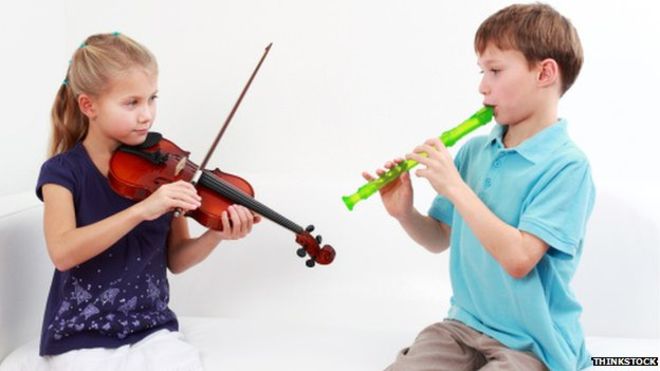Music Training Matters
Music training means learning to play an instrument or sing, employing as many senses as possible — fingering the instrument, hearing pitches, seeing the score, feeling the rhythm, moving to the beat. Recent research shows that music education pays off for reading instruction as well!
Music in Dyslexia Education Research
Around 2003, research into the effects of music training on dyslexia increased dramatically. Around the world, dyslexia researchers uncovered what was hidden in plain sight. Students with dyslexia who study music also improve their reading and language skills. Also, dyslexic students often exhibit remarkable musical talent. Musical approaches that emphasize rhythm and movement seem best suited for teaching dyslexic students.
Music Training as Dyslexia Therapy
First, don’t think of it as therapy. Music training is life-enriching and intellectually stimulating for anyone. Next, don’t think of music training as a chance to produce a music prodigy. Although many people with dyslexia are gifted in music, that’s not the point. Musical training opens a door to developing whatever talents exist. Experiencing joy in music leads to improved cognitive success across many endeavors, including reading.
Start with Rhythm
Very young children enjoy accompanying music with a shaker or drum. This fine-tunes the brain to better perceive the rhythm of speech and language as well.
Find the Right Teacher
Music, like all learning, should be fun! A teacher that loves teaching and employs kid-friendly techniques with lots of movement is best. Alta remembers her first piano teacher. Alta started at age four. She arrived at the teacher’s house to find a giant piano keyboard on the floor. She learned the notes by dancing on them and singing them as well as seeing them on paper and fingering them on the piano.
Provide positive feedback
Notice when the child masters a tune or scale or makes up her own music to express herself. Music success deserves the same celebration as academic or sports success. It is not somehow less important.
Practice Needs to be Child-Friendly
Hours of practice every day are not needed though some students will want to do that. For most children, five to ten minutes per day, every day, is the way to go. As with most learning, daily short practice is far more effective than longer stints at greater intervals.
Brain Growth Takes Time
Music training actually augments brain growth in specific ways that help remediate dyslexia! (Habib,et al., 2016; Eren et al., 2012; Emmerson, 2013; Overy 2003; Ouimet and Balaban, 2010) There are many more references, but these will do for now. This brain growth takes time. Here’s what’s happening. Learning to play an instrument or sing leads to more brain plasticity than just listening to music. (Trainor, Shahin, & Roberts, 2009)
Music Improves Reading
Overy (2003) concluded that rhythm and singing games improve spelling and phonological and auditory skills in children with dyslexia. Forgeard et al. found that music training produces improved reading skills. These exciting results may be because music uses both sides of the brain and shares many of the parts of the brain used for processing language. But, however it works, the research is clear that music training is a huge help for dyslexic students. It not only improves reading skills down the road, but it also provides a lifetime of enjoyment and a positive way to interact with others.
Music Lessons are as Important as Reading Lessons
Music training may salvage a damaged ego or bring back the sparkle to a child who has almost given up. So don’t make a child choose between reading lessons and music. They need the music!
Happy Music is Essential
Occasionally we hear of a student who doesn’t like music lessons. If this happens, simply stop the lessons and look for a different teacher, a different instrument, or a different approach. For example, a child who doesn’t resonate with piano lessons may love group drumming sessions. It’s essential to find a teacher who emphasizes movement and teaches to the gifts, using multiple techniques to find what works well for each student. If a child doesn’t enjoy music, you have the wrong teacher for that child.
All learning should be happy! This is true because children flourish when they are happy, and because the relaxed brain learns and remembers far better than the stressed brain. (Vogel, 2016)
What if the student isn’t happy?
Happy, non-stressed learning is so important that we are going to make the startling statement that if your dyslexic child reacts to school with anger, despair, avoidance, and tears, it makes sense to consider removing the child from school for a year or two and teaching him or her to read at home. It will make it easier to find time for music lessons the child loves!
by Yvonna Graham, M.Ed.
www.dyslexiakit.net
@GrahamYvonna
